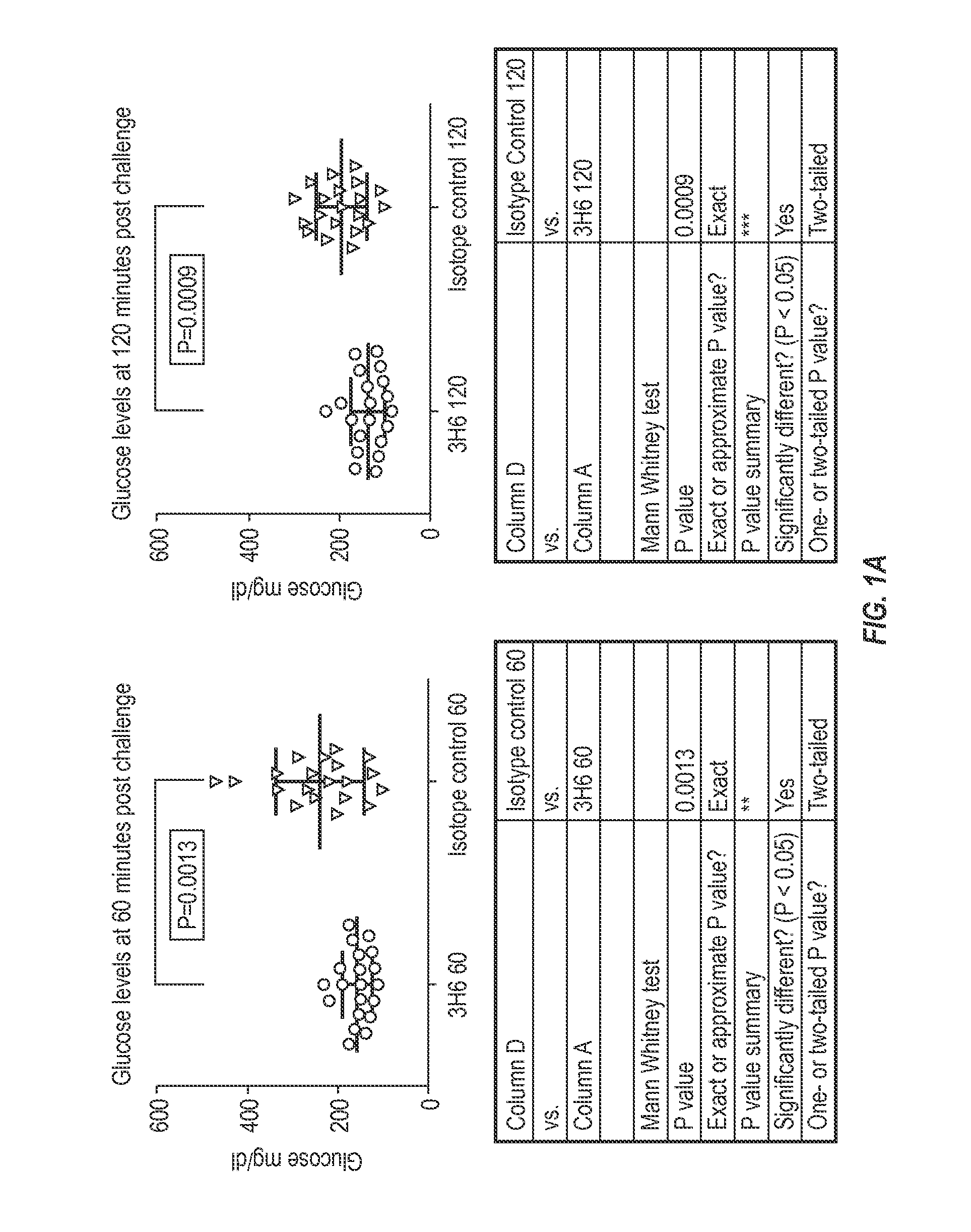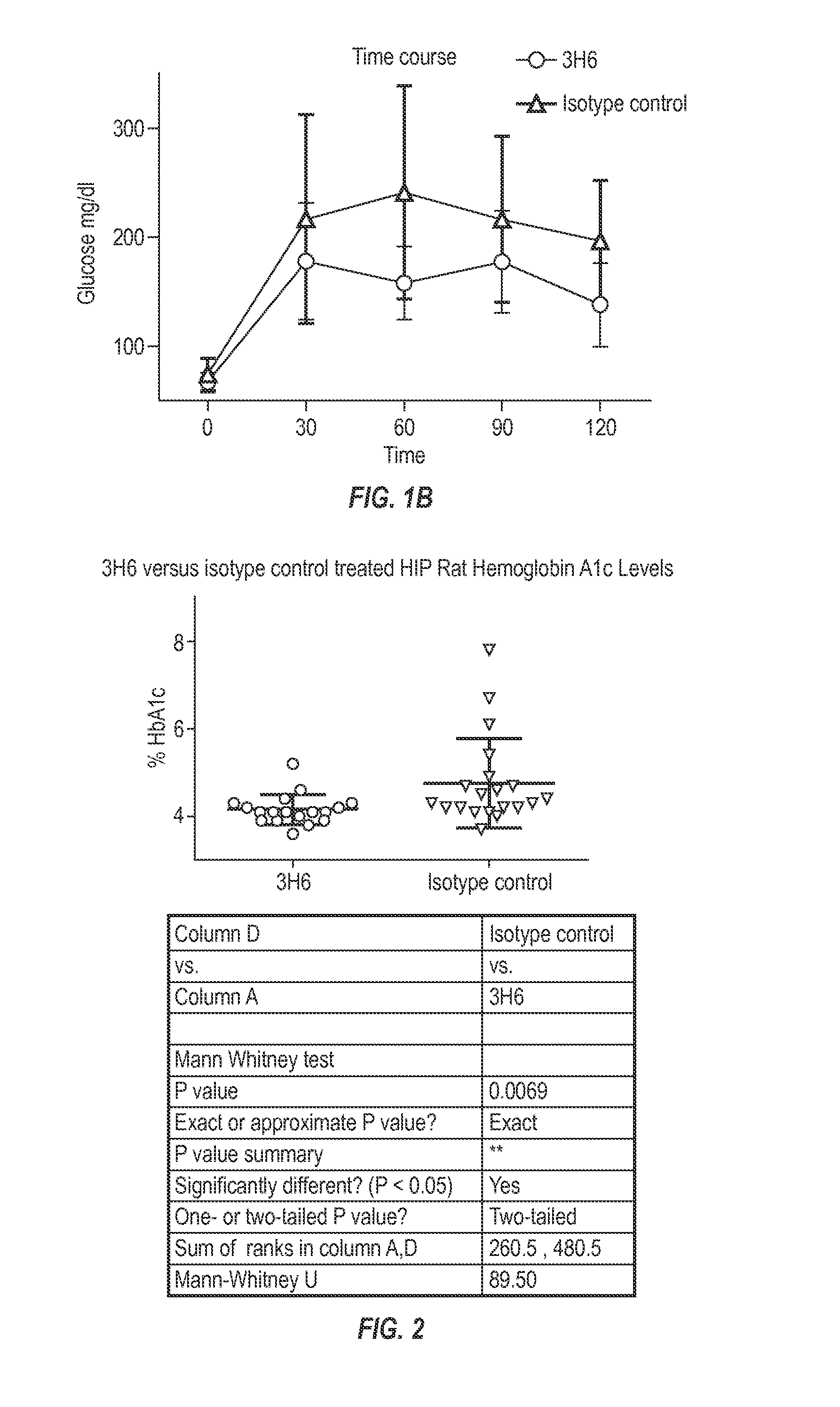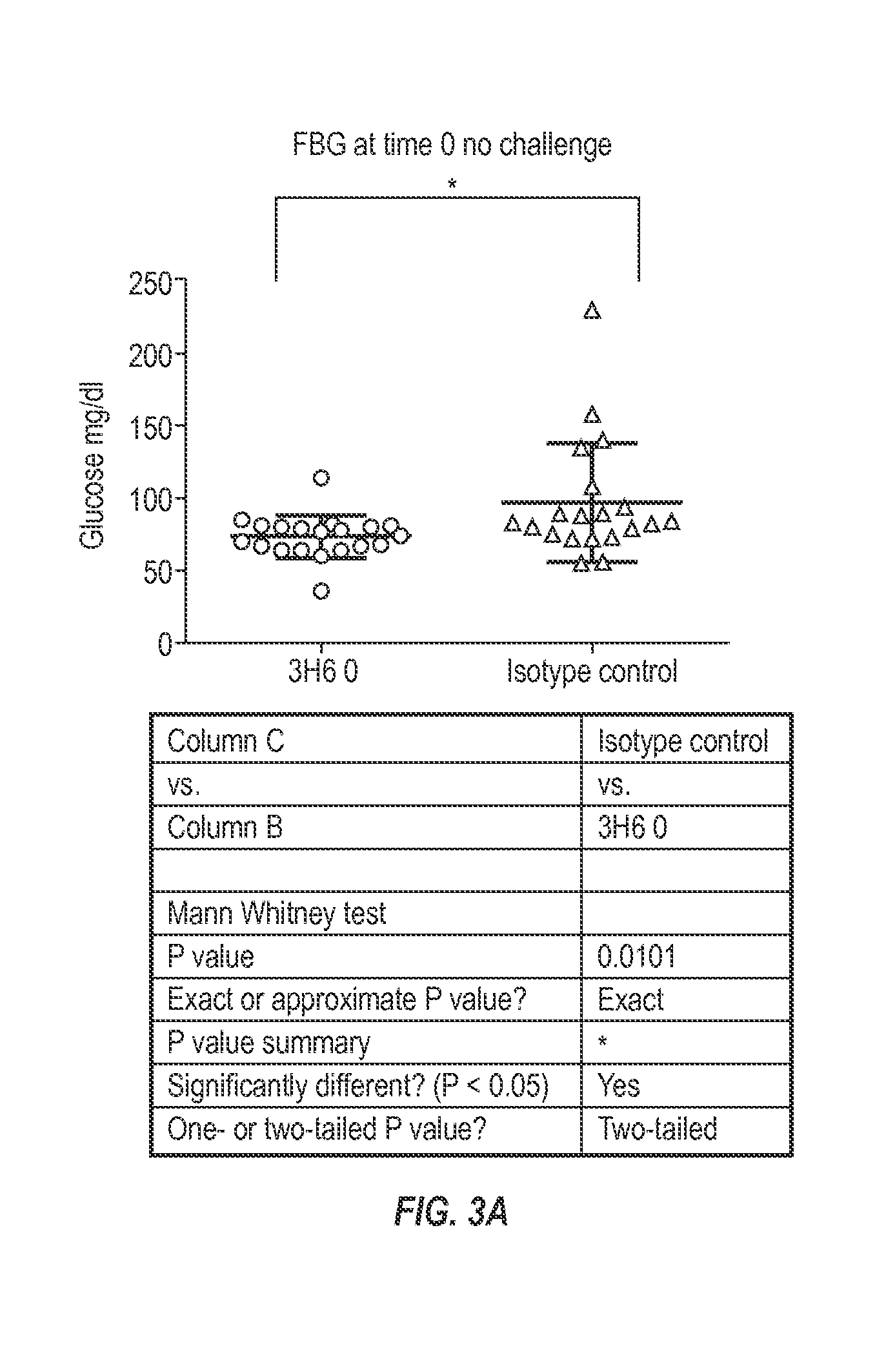Antibodies that recognize iapp
a technology of antibodies and iapp, applied in the field of antibodies that recognize iapp, can solve the problems of increased risk of t2d, increased risk of pre-diabetes, and small aggregates of abnormally folded proteins, and achieve the effects of stabilizing a non-toxic conformation of iapp, reducing iapp deposits, and reducing iapp deposits
- Summary
- Abstract
- Description
- Claims
- Application Information
AI Technical Summary
Benefits of technology
Problems solved by technology
Method used
Image
Examples
example 1
Assessment of IAPP Fragments and Full-Length IAPP in Male HIP Rats
[0199]This example describes administration of IAPP peptides to transgenic rats. The HIP rat is a transgenic rodent model which incorporates a gene that encodes the human form of Islet Amyloid PolyPeptide (IAPP) and results in overproduction of this peptide. Butler et al. (2004), Diabetes Vol. 53:1509-16. IAPP is a normally produced peptide which is co-secreted with insulin by the pancreatic islet cells. When secreted at pathological levels, IAPP can self-associate, leading to amyloid deposition.
[0200]EL-IAPP / fragments and EL-IAPP / intact are peptides, which, when coupled with keyhole limpet hemocyanin, serve as immunogens that lead to the formation of anti-IAPP antibodies that are being investigated for their potential to block diabetes caused by IAPP-induced islet cell toxicity.
[0201]This study was designed to look at the effects of dosing EL-IAPP / fragments and EL-IAPP / intact in the male HIP rat.
Materials and Methods...
example 2
Isolation of Murine 3H6
[0227]LA28-3H6 was originally a mouse hybridoma, producing an anti-hIAPP antibody of isotype Gamma 2a k, which resulted from a fusion of spleen cells from a mouse injected with hIAPP coupled to KLH via gluteraldehyde. The mouse was immunized with 25 μg of the conjugate in RIBI adjuvant on days 0, 7, 14, 21, 39, 46, 53, 60, 77, 84, and 91. A serum sample was taken on day 70 and the titer of the mouse was found to be 44K against human IAPP. On day 97 the mouse was injected with the IAPP / KLH conjugate both intraperitoneally and intravenously. Three days later the spleen was removed and a cell suspension was generated and frozen. Four months later the suspension was thawed and fused to SP2 / 0 cells. The fusion was screened against hIAPP, then epitope mapped against shorter peptides and found to react with LSSTNVGSNTY (SEQ ID NO: 4), which corresponds to amino acids 27-37 of IAPP.
example 3
Effects of Antibody 3H6 in HIP Rats after 18-22 Weeks of Treatment
[0228]To test that ability of the 3H6 antibody to alleviate abnormal glucose metabolism, such as associated with type 2 diabetes, the rat HIP model was selected. To facilitate such testing, chimeric mouse-rat 3H6 antibodies were generated.
Mouse-Rat 3H6 Chimeric Antibodies
[0229]Briefly, the PS / 2 rat hybridoma was purchased from ATCC. As per information provided by ATCC, the PS / 2 hybridoma expresses an IgG2b / kappa isotype rat antibody. mRNA was purified from PS / 2 cells using QiagenOligotex Direct mRNA kit. Purified mRNA was then directly used for PCR amplification of the constant regions using Invitrogen SuperScript III One-Step RT-PCR Platinum kit. Rat constant regions were amplified using IgG2b and kappa specific forward and reverse primers. PCR fragments were purified and subcloned into a plasmid for sequencing. DNA sequencing verified that the cloned sequences correspond to the rat IgG2b and kappa constant regions. ...
PUM
| Property | Measurement | Unit |
|---|---|---|
| Fraction | aaaaa | aaaaa |
| Fraction | aaaaa | aaaaa |
| Density | aaaaa | aaaaa |
Abstract
Description
Claims
Application Information
 Login to View More
Login to View More - R&D
- Intellectual Property
- Life Sciences
- Materials
- Tech Scout
- Unparalleled Data Quality
- Higher Quality Content
- 60% Fewer Hallucinations
Browse by: Latest US Patents, China's latest patents, Technical Efficacy Thesaurus, Application Domain, Technology Topic, Popular Technical Reports.
© 2025 PatSnap. All rights reserved.Legal|Privacy policy|Modern Slavery Act Transparency Statement|Sitemap|About US| Contact US: help@patsnap.com



